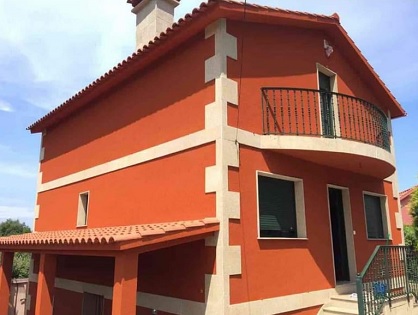There are a wide array of different choices available for home insulation. While fiberglass insulation is the most common type in the U.S., it does have many disadvantages, including some potential health risks during installation. A superior alternative is sparking interest among many homeowners in North America. Cork is an excellent insulator with ideal thermal properties. Cork insulation is also resistant to dampness, and it’s an eco-friendly choice because it’s a renewable and recyclable resource. Thus, it is a superb all-around option for insulating your home.
Cork insulation has high thermal inertia.
The thermal properties of the material are among the top concerns when evaluating it as an insulator. And regarding its thermal properties, cork could be described as an overachiever. The thermal conductivity of cork ranges from 0.037 to 0.040 W/(mK). This is highly advantageous for insulating material. Plus, cork has a high specific heat capacity and high thermal inertia. It performs well across a wide range of temperatures—keeping homes pleasantly warm in the winter and cool in the summer.
Cork has other insulating properties.
In addition to its great performance as a thermal insulator, cork offers good acoustic insulation. Cork’s unique structure and flexibility enable it to absorb up to 70% of tones that are found within the 400 to 4000Hz frequency range. In other words, instead of transmitting sound waves and vibrations, cork absorbs them. These acoustic insulation and anti-vibration properties help to make cork an ideal building material. It works particularly well for urban areas where there is a strong desire to mute the noises of the busy world outside.
Cork insulation can help you reduce your energy costs.
Most of the world’s supply of cork comes from the famous cork oak forests of Portugal. There, cork has been harvested by hand in the traditional way for well over 100 years. Because of the labor-intensive nature of cork harvesting, cork insulation often requires a higher upfront investment compared to other insulators. However, there is a good reason why so many homeowners have decided to invest in it. The energy savings enable cork insulation to pay for itself. When it comes to energy-efficient and eco-friendly insulating materials, as a result, it’s hard to beat cork.
Cork insulation is resistant to dampness and rot.
The thermal properties of an insulating material are not the only factor that you will need to consider. Any insulating material could quickly cause more harm than good if it absorbs moisture and leads to rot, mold, and mildew. Some insulators require an added moisture barrier in order to enhance their moisture resistance. Cork does not because it is naturally resistant to moisture. Consider the typical amount of cork used as a wine stopper. In this small amount, there are about 800 million cells. Those cells include suberin, which is a waxy and impermeable substance that blocks the transference of moisture. The capacity of cork to resist moisture so well is why it is so frequently chosen as a wine stopper. You can bring that same superior moisture resistance into your home to prevent common problems such as mold and rot.
If you’d like to learn more about the benefits of cork insulation for your home, then you can get in touch with a friendly representative at ThermalCork Solutions. We pride ourselves on offering top-quality products at competitive prices. Want to learn more? Call us today for more details.


